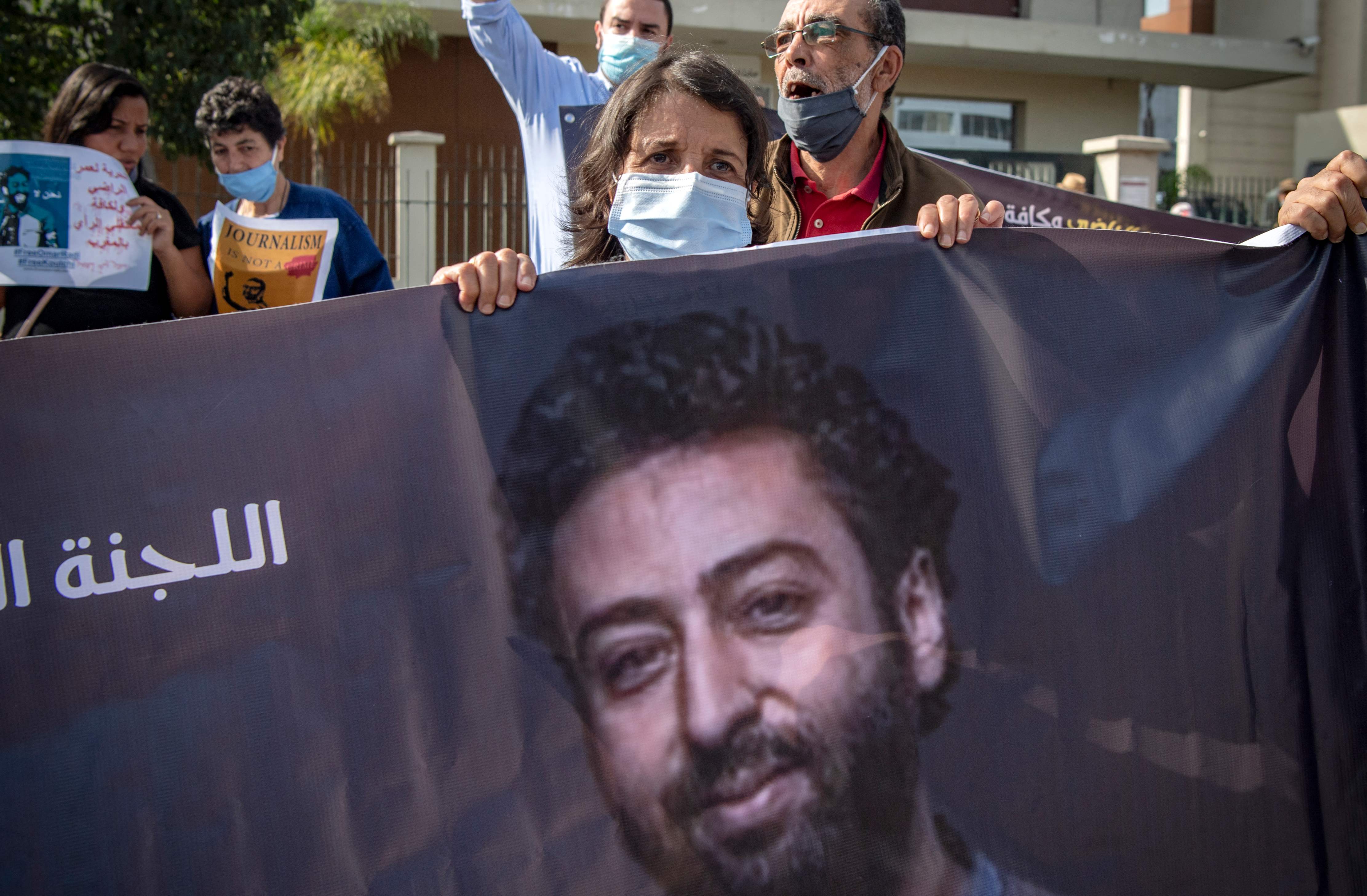Amnesty claims jailed Moroccan journalist was targeted by Rabat using Pegasus spyware before being arrested
The Moroccan government denies any use of the Israeli spyware

Your support helps us to tell the story
From reproductive rights to climate change to Big Tech, The Independent is on the ground when the story is developing. Whether it's investigating the financials of Elon Musk's pro-Trump PAC or producing our latest documentary, 'The A Word', which shines a light on the American women fighting for reproductive rights, we know how important it is to parse out the facts from the messaging.
At such a critical moment in US history, we need reporters on the ground. Your donation allows us to keep sending journalists to speak to both sides of the story.
The Independent is trusted by Americans across the entire political spectrum. And unlike many other quality news outlets, we choose not to lock Americans out of our reporting and analysis with paywalls. We believe quality journalism should be available to everyone, paid for by those who can afford it.
Your support makes all the difference.The Moroccan investigative journalist and human rights activist, Omar Radi has been jailed for six years after rights groups allege his phone was infected with the Pegasus spyware, an accusation Rabat denies.
Radi, 35, was sentenced by a Moroccan Court yesterday on charges of espionage and rape. Radi had initially been arrested in June of last year, just days after Amnesty alleged his phone was successfully infected by the Pegasus spyware.
Radi protested his innocence throughout his one year of pre-trial incarceration, where, in addition to the charge of rape, he faced two accusations of "undermining the internal security of the state."
The charge of rape relates to his colleague, Hafsa Boutahar, with whom Radi claimed he enjoyed a consensual sexual relationship. Ms Boutahar has denied this on numerous occasions. However, rights groups have pointed to a growing trend within the Moroccan judiciary of eliciting and distorting charges of sexual assault with which to prosecute activists and journalists.
Another of Radi’s colleagues, Imad Stitou, was sentenced to one year’s imprisonment for his part in the assault upon Ms Boutahar, half to be suspended, after he appeared as a witness.
Prior to his arrest, rights groups claim Radi had been a consistent victim of government harassment due to his efforts to expose corruption and rights abuses within the Kingdom, principally through the Le Desk platform which he had co-founded.
In December 2019, Radi received a four-month suspended sentence for "contempt of court," following a tweet he had published some eight months earlier and sparking a series of confrontations with the government that culminated in yesterday’s trial.
The Moroccan government has denied claims of using the Israeli spyware, saying that it "never acquired computer software to infiltrate communication devices." Moreover, Rabat insists that it has never "infiltrated the phones of several national and international public figures and heads of international organisations through computer software"
Nevertheless, a forensic analysis of Radi’s phone carried out by Amnesty International last year found it had been infected with the malware, supporting the group’s claim that he and other human rights defenders in Morocco were being targeted by the government using the Israeli spyware.
Pegasus, which is manufactured by NSO has a controversial history, dating back to at least 2019 when it was sued by Whatsapp for allegedly hacking activist’s phones. According to NSO, its Pegasus software is exported to governments to allow them to track terrorist networks and criminal gangs, by harvesting photos and emails, record calls and secretly activate microphones. However, a recent data leak of up to 50,000 phone numbers obtained by a number of media companies has suggested that the Pegasus malware has instead been used by governments to target journalists and human rights defenders.
For Morocco, few would dispute that press freedom is in decline. According to the media watchdog, Reporters Without Borders, Morocco fell three places to 136 of the 180 countries ranked within its 2021 World Press Freedom Index.
Speaking to The Independent, Reporters Without Borders’ spokesperson and Editor in Chief, Pauline Ades-Mavel said, "Morocco’s media continue to be subjected to judicial harassment. In addition to the trials of a number of media figures that have dragged on for years, several new prosecutions on sex charges have been initiated against journalists"
Ms Ades-Mavel continued, pointing to the manner in which such trials were carried out and the "media hype and defamation accompanying them," which she said deprived both the victim and alleged aggressor of their rights. "Heavy sentences have been passed, and several journalists and citizen-journalists continue to be imprisoned," she continued.
Ms Ades-Mavel was also quick to add her voice to the chorus of right groups criticising the sentencing of Radi and Stitou, as well as highlighting the case of rights activist and journalist, Soulaimane Rassouni,
49-year old Rassouni was sentenced to five years imprisonment in June for an indecent assault upon a young man, alleged to have been carried out in 2018. Rassouni was initially arrested in May 2020. He is currently on hunger strike.
"This is a shameful verdict," Ades-Mavel said. "In the midst of the Pegasus affair, and a few days after having handed down a similar decision in the Rassouni case, the Moroccan justice system persists in denying the unfairness of its procedures, and in handing down decisions that heavily condemn journalists who are denied a fair trial."
Join our commenting forum
Join thought-provoking conversations, follow other Independent readers and see their replies
Comments